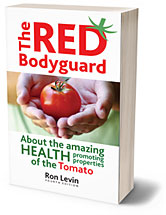Dr Ross Walker on Heart Health & Statins
What does eminent cardiologist Dr Ross walker say about heart health and Statins?

Recently, the world respected journal The Lancet published a large review from Oxford University. It highlighted the vital importance of the wide prescription of statin agents as a prevention and treatment for cardiovascular disease, and at the same time, played down any potential side effects.
The report went on to point out the well-established fact that in secondary prevention, i.e. people with existing cardiovascular disease, or in people at very high risk i.e. those with strong risk factors for heart disease, there is significant gain in using statin drugs. In those with existing disease, there is an absolute 10% reduction in further cardiovascular events, and a 5% reduction for high risk cases.
Firstly, can I make the point that I also agree that statin drugs should be part of the management of people in these categories, as the evidence for cardiovascular benefits is overwhelming.
But, can I also make a few vital points around this topic. Most importantly, the five keys to ultimate health which I have detailed on numerous occasions:
- 1. Have no addictions
- 2. Seven to eight hours every night of good quality sleep
- 3. Eat less and eat more naturally
- 4. Three-five hours every week of some form of testing exercise
- 5. Happiness, peace and contentment
In combination, these five vital lifestyle keys reduces your risk for all diseases up to 70% i.e. they are much more powerful than taking a drug to lower your cholesterol. But, if you have established cardiovascular disease, why not combine these vital lifestyle keys with statin therapy?
Now comes the vital point for people who are at low risk.
All of the evidence for statin drugs comes from people who are at much higher risk for cardiac events. There are no good studies in people in the low-risk category to show that statins are of any benefit. In fact, a large study from the US in 2015 looked at 5,000 people who had been studied for 10 years.
77% of the people in that trial had an elevated cholesterol and fitted the US criteria to commence statin therapy. Half of these people had a 0 calcium score measured by CT scanning of the coronaries, and the conclusion of the trial was that the event rate in these people was so low that the statins were worthless for people in this low-risk category, regardless of cholesterol levels.
Also, the carefully controlled trials of statin therapy did indeed show a low side-effect rate. But, in the real world where I practice medicine, the side-effect rate is so much higher. I would estimate from my clinical practice, that somewhere between 10-20% of patients suffer some form of muscle problem, which includes muscle pain, stiffness, weakness, cramping or even loss of muscle bulk known as atrophy. I would estimate around 20% of people who take statins, especially the fat soluble statins i.e. Lipitor and Zocor, experience some degree of memory loss, problems with concentration, fatigue, depression, anxiety, irritability and poor sleep. There is some possible effect on the liver, which may or may not be clinically significant, along with a very under-estimated rate of diabetes as detailed in this recent Lancet report.
As statins affect Vitamin K2 metabolism, I also use vitamin K2 180 µg daily. Also, there is a new concentrated tomato pill, which has been proven in a number of studies to have significant vascular benefits. I also add in Ubiquinol and Magnesium Orotate, to minimise the effects on the muscles and diabetic risk. In all patients who take statins for the appropriate reasons, I try to minimise any risk of side effects, and maximise the benefit by adding Bergamet. My research group has published data to show that half-dose statins, combined with Bergamet, has a better effect on the overall lipid profile than using the high-dose statin alone.
Cardiovascular disease is certainly the most common cause of death around the globe, but this does not mean that statin drugs are the ultimate solution to this problem. I am a great supporter of the appropriate use of statin drugs, but the concept of statins for all has not been proven, and it’s clear to me that the inappropriate use of statins may cause significant harm in some people.
Published: Thursday, September 15, 2016
FREE Book

Read about the benefits of Lycopene explained by Ron Levin in his book "The RED Bodyguard". Get The Book
Hear about us
Further Questions?
Cardiovascular health is very important, so it is natural to have questions. If we haven’t answered all of yours, please check our FAQ section or get in touch - Sam Hunter 0403388771 Contact Us